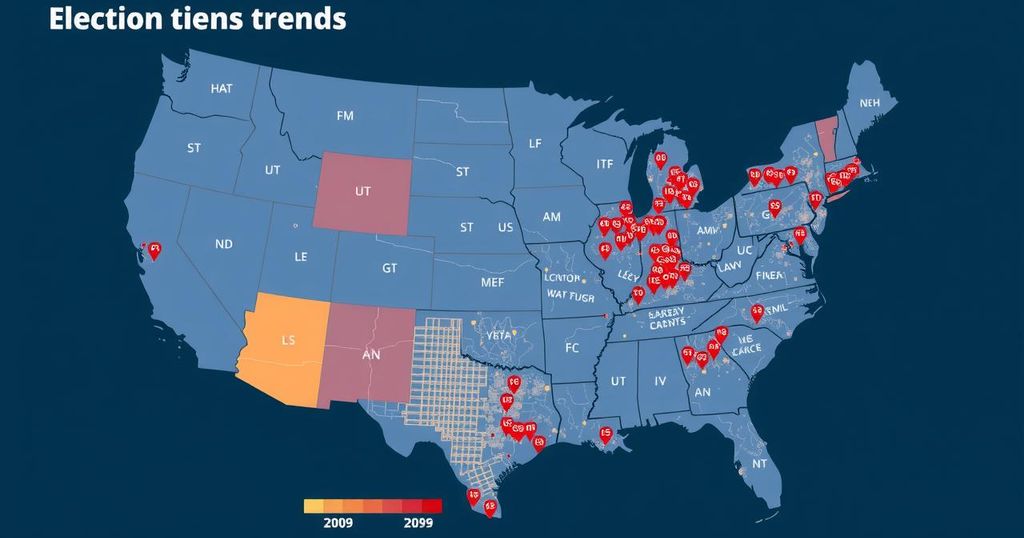Election 2024: Trends and Tensions in the Face of Incumbency

The 2024 United States presidential election occurs in the context of widespread anti-incumbent sentiment globally. Despite strong economic indicators in the U.S., public perception is negative, with many voters dissatisfied with the country’s trajectory. Candidates Kamala Harris and Donald Trump make final appeals as early voting surpasses 68 million. Uncertainties in polling and potential external influences complicate predictions, making the upcoming election critical for both American policy and global dynamics.
The upcoming 2024 United States presidential election arrives amidst a global wave of anti-incumbent sentiment, with incumbents facing significant challenges in numerous nations. Countries such as the United Kingdom, South Africa, Japan, and France have recently witnessed dramatic losses by ruling parties, raising questions about whether the United States will follow suit or resist this trend. Despite a robust domestic economy characterized by strong GDP growth, low unemployment, and cooling inflation, public sentiment in the U.S. appears skeptical, with many voters expressing discontent regarding the direction of the nation. As the election concludes in just four days, both major candidates, Vice President Kamala Harris and former President Donald Trump, strive to solidify their support. Harris highlights Trump’s perceived instability and quest for power, while Trump reiterates his commitment to revitalizing the middle class and enhancing international trade policies. Crucially, pollsters are adjusting methodologies to avoid previous miscalculations, making predictions increasingly uncertain. Early voting has reached approximately 68 million ballots, yet the partisan makeup of these votes remains a mystery. Moreover, external influences and misinformation campaigns pose additional threats to the integrity of the election process. The outcomes of this election will not only shape the future of American policy but also impact global dynamics, with experts predicting varied repercussions based on which candidate emerges victorious.
The context surrounding the 2024 election is marked by a broader global trend where voters are increasingly opposing incumbent administrations. The phenomenon has been evident in numerous significant elections across the world, prompting speculation about the U.S. election’s potential outcomes amidst similar voter sentiments. Despite economic indicators that signal growth and stability, public perceptions remain at odds, reflecting a complex landscape for candidates leading into the decisive days of the campaign. Polling methodologies are being reexamined and adjusted to better capture voter sentiments, fueling conversations about the possibilities for both candidates as Election Day approaches.
In conclusion, as the 2024 election approaches, the United States stands at a crucial crossroad amidst a globally observable anti-incumbent wave. The contrasting public perceptions of the economy, alongside the evolving polling landscape and the looming threat of misinformation, suggest an uncertain yet pivotal electoral outcome. Both candidates are making final appeals to voters, underscoring the significance of the decisions that will soon be made. Ultimately, the election’s result will resonate far beyond American borders, influencing not only national policy but also international relations.
Original Source: www.cfr.org







